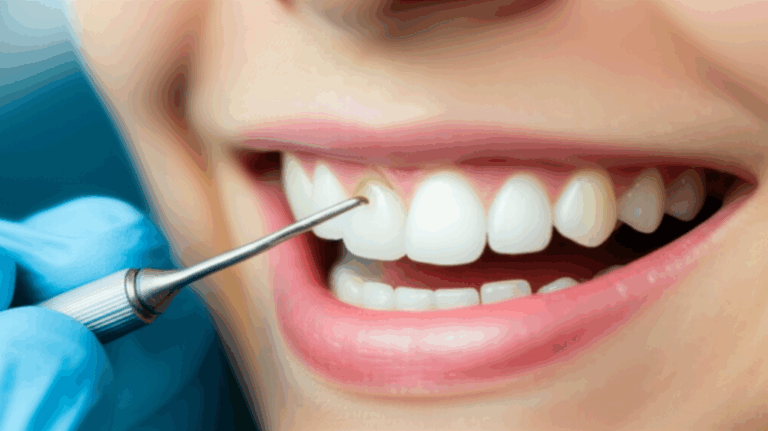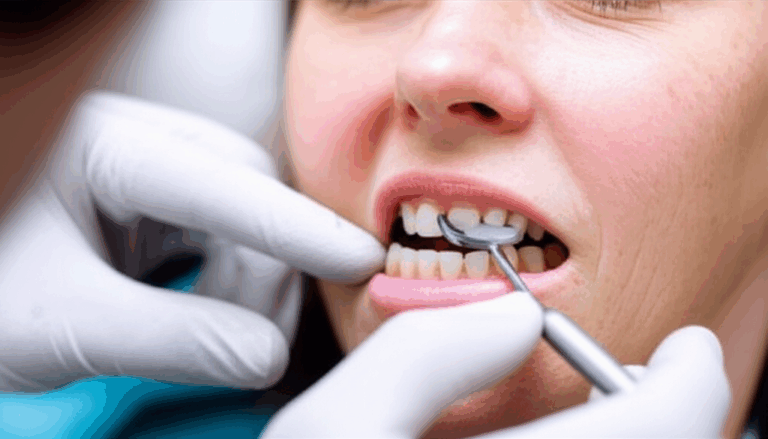
Can a Dentist Charge for Services Not Done?
Understanding Your Rights and How to Protect Yourself
Have you ever looked at your dental bill and thought, “Wait… I don’t remember getting that filling or x-ray”? Maybe your insurance papers or claim summary have codes and strange charges that don’t match what you remember from the dentist’s chair. If so, you’re not alone—and it’s a good reason to be careful. Many people worry, “Can a dentist charge for work they didn’t do?” Let’s clear up the facts and make sure you know how to protect your dental health and your money.
In This Article
Here’s a simple guide to what’s below. Feel free to jump to the part you need or read everything for the full picture:
- Simple Answer: You Can’t Be Billed for Work Not Done
- Common Times This Happens
- Your Rights as a Dental Patient About Billing
- How to Show Something Wasn’t Done
- Step-by-Step: How to Handle Wrong Dental Charges
- How to Prevent Billing Problems in the Future
- What Happens to Dentists Who Charge for Work Not Done
- Takeaway Tips: Keep Yourself and Your Smile Safe
Simple Answer: You Can’t Be Billed for Work Not Done
Let’s keep it straight. No, a dentist can’t legally or honestly charge you for things they never did. In fact, charging for unperformed work is against the law and against dental rules.
But remember, there’s a difference between:
- Services not done (like billing you for a filling you didn’t get)
- Work that started but didn’t finish (like a root canal started but not finished)
- Charges for missed appointments (okay if you knew about them, but not for work not done)
Sometimes, there’s just a mistake with the bill or while typing in codes. But sometimes, it’s something more worrying, like adding extra codes for more money (“upcoding”), splitting up a charge for more money (“unbundling”), making up work (“phantom billing”) or real dental fraud.
Common Times This Happens
If your bill looks wrong or something just feels off, it could be because of:
1. Phantom Billing
This is like being billed for dinner you never got. You check your line-by-line bill and find a treatment—maybe a cavity filling or special cleaning—that never happened. This could be a mistake or, less often, done on purpose.
2. Upcoding & Unbundling
- Upcoding: When the office charges for a complicated or expensive treatment when you only had something simple. For example, you get a cleaning but they bill for deep gum work.
- Unbundling: Charging piece by piece for what should be one simple fee. For example, breaking up a regular cleaning into lots of small, expensive charges.
3. Cancellation or Missed Visit Fees
This is a gray area. Most places can charge you a fair no-show or late-cancel fee—but only if you knew about it. But they cannot charge you or your insurance for a procedure you never received—only for missing the spot in their calendar.
4. Work That Didn’t Get Finished
Say your dentist started a root canal but stopped halfway. The dentist should only bill for what was done, not for finishing the job if it wasn’t finished.
5. Diagnostic Work Never Done
If you see charges for x-rays, exams, or other tests that never happened, that’s a red flag. You should ask about it.
6. Mistakes in Paperwork
A mix-up can sometimes mean you get someone else’s charge or the wrong thing on your bill. Not fraud, but needs fixing as soon as possible.
Do any of these seem familiar? If so, read on to see your rights.
Your Rights as a Dental Patient About Billing
You might not know all the legal stuff, but you do have important rights when paying for dental care. Here they are in plain English:
1. Right to See a Detailed Bill
You should always get to see exactly what you’re paying for. A bill with everything listed helps you spot mistakes. Don’t be shy to ask for it; it’s your money.
2. Right to Look at Your Dental Records
If you want to know what really got done, you can request your complete dental file. This should have treatment notes, x-rays, and any forms you signed. You can compare your records with your bill.
3. Right to Know What You’re Agreeing To
No one should do treatments or charge you without telling you first and getting your “yes”—ideally signed or written down.
4. Right to Dispute Bills
If something doesn’t look right, you can and should question it—from the dental office, your insurance, or even in court if needed.
Still not sure what to do? Keep reading.
How to Show Something Wasn’t Done
If you want to challenge a charge, you might ask, “How do I prove something didn’t happen?” Here are some ideas:
Keep Your Paperwork
Collect your bill and any insurance Explanation of Benefits (EOB). Check to see if anything on the bill didn’t really happen. Find x-rays you never took? Crowns you never received?
Look at Your Dental File
Your file should show notes and proof of every procedure. If you’re billed for an x-ray, there should be a copy. If records are missing, that’s a warning sign.
Write Down What You Remember
Note what you remember about each visit. Don’t underestimate this—your own notes can help, especially if you remember what was discussed or done.
Bring a Witness
Did someone go with you? Their account can support your memory.
Use Your Emails and Texts
Emails, texts, or appointment reminders can show what was planned or done.
Step-by-Step: How to Handle Wrong Dental Charges
Don’t let your stress build up. Here’s what to do—whether it’s a simple error or something worse.
Step 1: Gather All Papers
- Collect your bills, EOBs, past treatment plans, and any reminders or emails.
- Ask your dentist for your full chart, notes, and any pictures or x-rays.
Step 2: Talk to the Dental Office First
- Start nice! Most problems are just mistakes.
- Ask to speak to the person in charge of billing or the dentist. Show your papers and ask for a simple explanation.
- If there’s a problem, ask them to fix your bill or refund you. Get their answer in writing.
Step 3: Call Your Insurance Company
- If your bill and insurance papers don’t match, call member services.
- Tell them about the issue and see how to file a dispute or review.
- If it looks like insurance fraud, they’ll look into it further.
Step 4: Tell Your State Dental Board
- If you’re still stuck or think it’s more than a mistake, make a complaint to the state dental board.
- They can check the dentist’s behavior and discipline them if needed.
Step 5: Consumer Protection Help
- File a complaint with the Better Business Bureau (BBB), your state’s Attorney General, or the Federal Trade Commission (FTC), especially if you think it’s a bigger problem.
Step 6: Talk to a Lawyer
- For big amounts or serious cases, find a lawyer who deals with health or consumer issues.
- You might be able to get your money back in small claims court or another way.
Extra Tips:
- Keep notes of every phone call or email during your case.
- Stay calm and stick to facts. This helps your case.
How to Prevent Billing Problems in the Future
The best plan is to stay ahead. Use these tips to avoid problems:
1. Always Read Your Plans and Forms
Ask for a clear explanation of any planned treatment and costs. Don’t sign a blank or confusing paper.
2. Get an Estimate in Writing
Before any work, get a clear, itemized cost estimate. Use it to double-check your final bill.
3. Know What Your Insurance Covers
Call your insurance or check online, so you know what’s paid for. Some offices can help you by getting estimates from your insurance in advance. Many use good systems for this, like a digital dental lab.
4. Keep All Your Own Records
Keep all bills, EOBs, treatment plans, and any messages. Taking notes after each visit helps you remember what was done.
5. Act Fast if You Spot a Problem
Don’t wait! Call the dental office and your insurance company as soon as you see something wrong.
6. Pick a Good Dental Office
Ask about their reputation and billing practices. Ask what steps they take to be accurate and fair.
What Happens to Dentists Who Charge for Work Not Done
You might feel nervous about reporting your dentist, but remember: charging for services not done is a big problem. Here’s what can happen to dentists who cheat:
1. Losing Their License
State dental boards can suspend or take away a dentist’s license if they break the rules.
2. Big Fines
Dental offices and providers can get hit with large fines—sometimes thousands of dollars.
3. Bad Reputation
Once people hear a dentist has had problems, it can be hard for them to build trust again.
4. Possible Jail Time
If the fraud is big or involves government programs (like Medicaid or Medicare), criminal charges and jail could happen.
5. Insurance Problems
Dentists caught doing this can lose their deals with big insurance companies. This can really hurt their business.
6. Civil Lawsuits
Patients can sue to get back money they were wrongly charged.
Remember: By reporting, you’re helping not just yourself, but others, too.
Your Healthy Takeaway: Keep Yourself & Your Smile Safe
Let’s sum up. If you think you’ve been billed for work that didn’t happen, here’s what to remember:
Things to Keep in Mind
- Dentists cannot charge you (or your insurance) for work they didn’t do.
- Some mistakes are simple, but sometimes it’s fraud—be alert.
- You have the right to detailed bills, your dental records, and to say yes or no to work.
- If you see a bad charge, speak up—start with your dentist and insurance, then go further if needed.
- Taking care early—by checking bills and keeping notes—can help stop headaches later.
- You help keep dental care honest by speaking up!
Simple Steps to Take:
- Always check your dental bills and insurance statements. If something seems wrong, ask right away.
- Save your dental papers and write down what happens at each visit.
- Act quickly—talk to your dental office first, then your insurance.
- Escalate to your state dental board or a consumer group if still stuck.
- Choose dental providers that are known for being fair and use good billing systems, like a respected china dental lab.
Frequently Asked Questions
1. Can a dental office charge me if I miss an appointment?
Yes, but only if they told you about the no-show fee clearly and you agreed to it. This charge is just for missing the appointment time—not for any treatment you didn’t get. They can’t bill insurance for this as care.
2. What if I paid for a treatment but it was never finished?
You should be billed only for what was actually done. If a treatment stopped partway, ask for a breakdown and challenge any charges for work not completed.
3. Who can help if the dental office won’t fix my bill?
Besides your insurance, contact your state dental board, consumer groups, or get a lawyer for big problems.
4. What if I see charges for dental lab work (like dentures or crowns) I never got?
Some dental work needs things made in a lab, like crowns or dentures. If these items were never given to you or put in, don’t pay for them. Good offices work with trusted labs—like a top crown and bridge lab—and keep billing clear.
Empower Yourself and Speak Up for Your Smile
Billing talks can feel tough, but it’s important to speak up. Protecting your wallet is just as important as protecting your teeth. Remember: reliable providers, including trusted implant dental labs, believe in open and honest billing.
Don’t let a confusing bill make you lose sleep. By knowing the rules, asking questions, and knowing where to get help, you can handle your dental care with confidence.
Here’s to your healthy smile, your happy wallet, and a much better partnership with your dental team—today and always.
Still Have Questions?
If you’re dealing with a tough billing problem, or just need advice on finding good dental providers or labs, talk to patient advocacy groups, your insurance company, or consumer help services. Remember, you have the power to make a difference!
References:
- American Dental Association (ADA) – Code of Ethics
- National Health Care Anti-Fraud Association (NHCAA)
- State Dental Boards and local consumer help
For more about dental materials and new technology, check sites like dental ceramics lab and stay up-to-date on good dental care habits.








